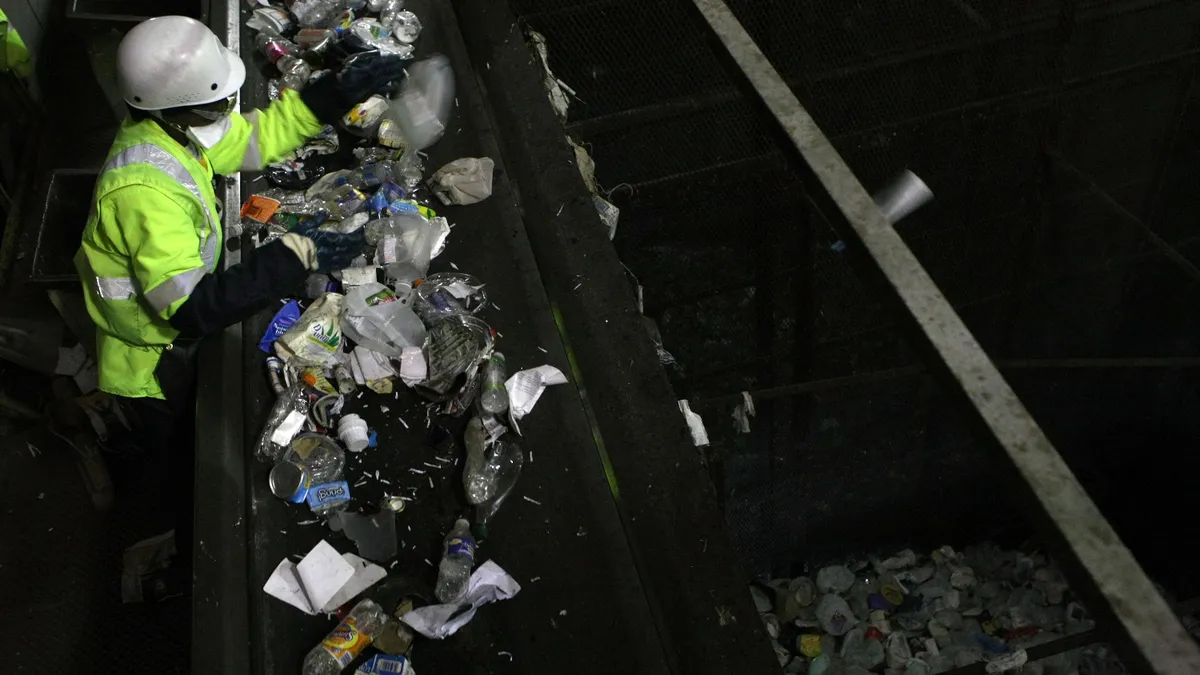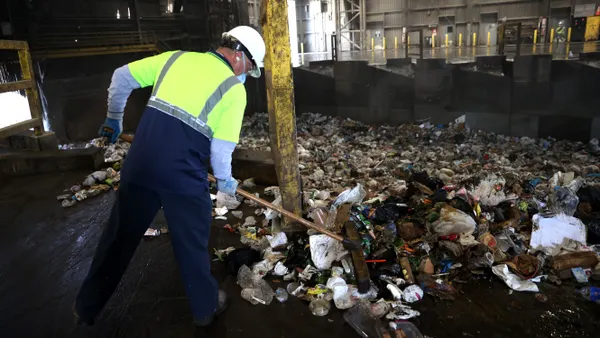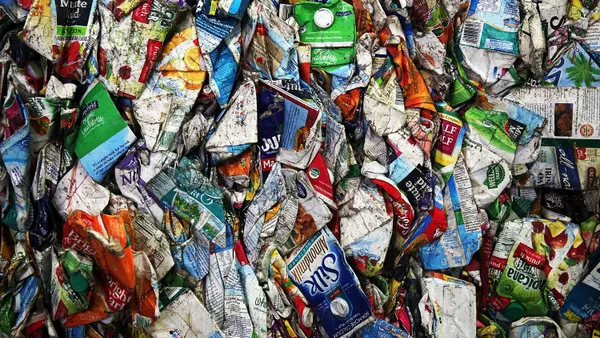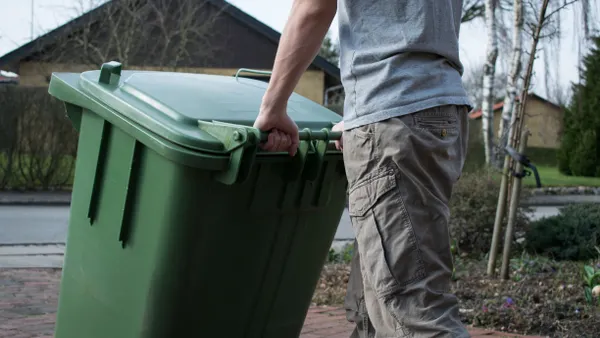Dive Brief:
- A recent report from the University of Florida, commissioned by the Florida Recycling Partnership Foundation, says municipalities that have recently discontinued their curbside recycling programs “significantly” contribute to the state’s greenhouse gas emissions while missing out on key revenue from recyclables.
- The report advocates for Florida municipalities to continue their curbside programs and retool them to better capture commodities and target contamination through public education. The report estimates such improvements could save $12 to $37 per household per year, compared with $1 to $12 a year they would save by canceling the programs altogether.
- The report comes as average recycling processing costs in Florida have risen from about $50 a ton to about $100 a ton in the last three years, and some MRFs and haulers have struggled to hire and keep workers, according to Malak Anshassi, assistant professor at Florida Polytechnic and a researcher on the study.
Dive Insight:
Numerous municipalities across the country, including several in Florida, have halted or considered halting their curbside collection programs in recent years. They have cited a combination of rising costs related to China’s National Sword policy, contamination and staffing issues, in some cases worsened by the COVID-19 pandemic. The University of Florida conducted a five-month study to see what impact discontinued recycling programs had on those municipalities’ budgets, as well as possible greenhouse gas emission implications.
Recent low commodity prices have not keep pace with processing costs, particularly as some recyclers in the state are reporting rising contamination rates. That has led some cities to feel they have no choice but to make major cuts to their program, Anshassi said. “Local cities in Florida are either ending their curbside recycling for the residents or changing their recycling programs so much that they're probably getting nonstop calls,” she said.
The report says municipalities should spend time and resources to reduce contamination, calling it “the most effective way to control the cost of recycling” because it cuts down on overall processing time, labor and energy usage as well as disposal costs.
MRF operators and local governments can feel a shared sense of frustration when residents don’t recycle correctly, Anshassi said, so public education campaigns can be a critical strategy for investment. The report found that residents were particularly confused about why their community’s recycling rules were different than those in other cities or counties.
Anshassi said struggling cities can also update their programs to focus on a smaller, more targeted list of recyclables that tend to weather instability best because those materials “typically have [had] a high economic value over the last 15 years or so, and they also have a pretty high impact in mitigating environmental impacts.” The report lists newspaper, cardboard, aluminum and steel cans, HDPE and PET bottles as examples.
Several cities in Florida have also recently updated their MRF contracts to protect all parties involved from major swings in commodity prices, a move that could prevent more cities from cutting programs and integrate better market stability. Revenue-sharing structures could also become more common, she said.
Though the report urges municipalities to think about longer-term impacts before cutting programs, especially environmental impacts, it could be a tough sell for some municipalities that say they need to balance their budgets and cut their losses.
The study does not directly address the role of waste-to-energy facilities in the state’s waste management process. Several cities that recently decided to end their curbside programs said WTE seemed like a viable alternative because Florida considers incineration to be a form of recycling. Florida has the most solid waste combustion facilities in the country. A bill that would have called for the state to create a “comprehensive waste reduction and recycling plan” failed to gain support in last year’s legislative session. Florida had a goal to achieve 75% recycling by 2020 but was not able to meet that goal even when factoring in credits for combustion and landfill gas-to-energy systems.
Pembroke Pines, Florida, has been sending its waste and recycling to an incinerator since January 2022, saying the process diverts material from landfills. The city said it no longer gets significant demand for some items it used to collect for recycling, such as PP and glass. On Jan. 1, Leesburg, Florida, stopped collecting recyclables separately, saying it could save about $100,000 a year to send the mix of recycling and waste to a nearby waste-to-energy plant to be converted to electricity.












